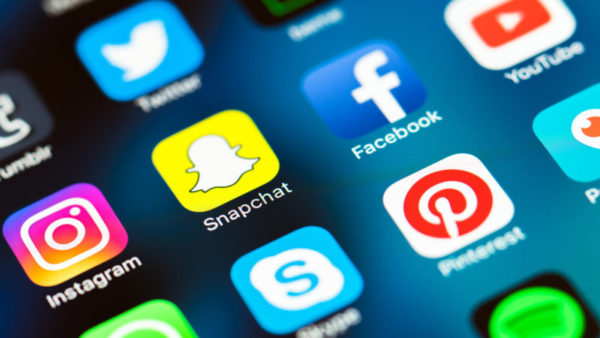
A rare showdown is looming at the Capitol. The Legislature handily approved House Bill 1 on Feb. 22, which would completely restrict teens 16 years and under from creating social media accounts on various platforms in addition to doing so without parental compliance.
The legislation is on Republican Gov. Ron DeSantis’ desk, awaiting his approval. However, DeSantis, who has been critical of the bill and claims it is almost certain to face First Amendment challenges, hasn’t indicated what he will do in the face of a March 1 deadline.
If he does nothing, the bill becomes law on July 1.
Supporters of HB 1 argue that it is a necessary measure to protect young individuals from the potential dangers of social media, which include increased rates of suicide, cyberbullying, online predators and exposure to inappropriate content. The Senate approved the bill with a 23-14 vote and House members followed with passing the bill on a 108-7 vote.
The opposing concerns hone in on attempting to truly define what the actual harms of social media are in relation to liberal based user censorship and walking the border of infringing on First Amendment rights, as well as the complications it could potentially cause with parental rights.
On Monday, the United States Supreme Court weighed in on the balance between parental responsibility and government intervention, questioning whether the state has the authority to dictate how parents manage their children’s online activities. The Supreme Court also expressed doubts with the bill’s possible negative effects on prominent social media platforms content regulation and its users such as TikTok, X, YouTube and Facebook.
Florida A&M University alumna Danielle Boyd uses her social media @lyfeasdani as an active content creator across various platforms. Boyd believes that if the bill were to receive a signature, it should target an even younger age group so that it may provide a healthier climate during peak childhood developmental years.
“I think banning social media at 16 years old is wild. You should be able to have a social media account. I think the ban would be better if it was set at 12 years and under,” Boyd said. “If the bill gets signed, I think it’ll help younger generations to become more connected with each other in real life, build community and kids will be more willing to speak to each other face to face. It would honestly help society by building better and realer relationships with each other outside of just through their phone.”
According to WUSF, DeSantis has expressed concerns about signing the bill and plans to look further into changes that lawmakers made to the bill as he considers whether it will receive his signature. DeSantis also told reporters that he will be processing this “through the weekend.”
USA Today also reported a statement given by DeSantis at a press conference Thursday afternoon where he expressed his concerns from a parental perspective.
“Parents need to have a role in this, I do think parents are concerned about social media and what goes on there, and I do think they think it’s a problem. But I also think that for people that are in high school, it’s not as simple.”
As DeSantis delves into the legal intricacies of HB 1, the debate intensifies over its potential threats to free speech, financial discrepancies for tech companies and social media app stakeholders, and parental rights. The outcome will likely set a precedent for how states navigate the intersection of online safety, constitutional rights and the financial interests of the tech industry in the digital age.